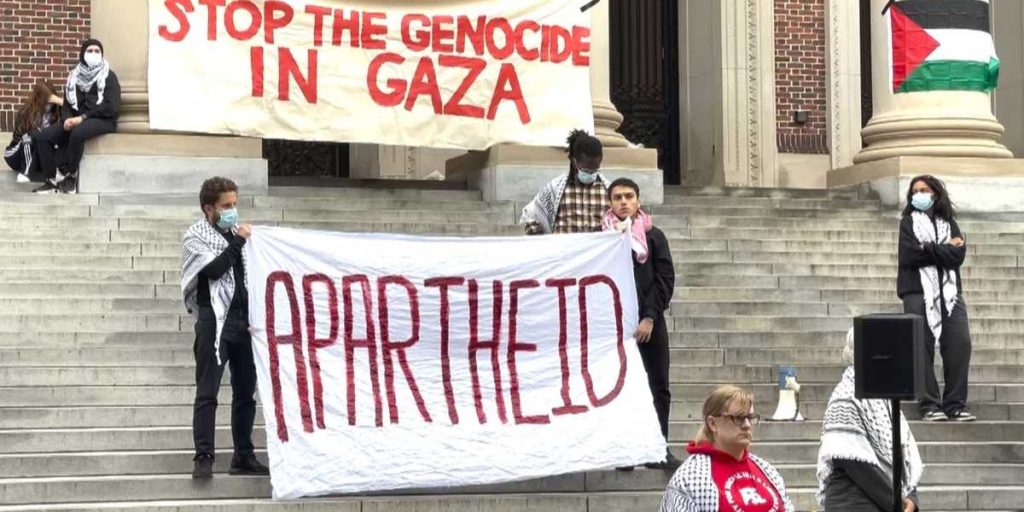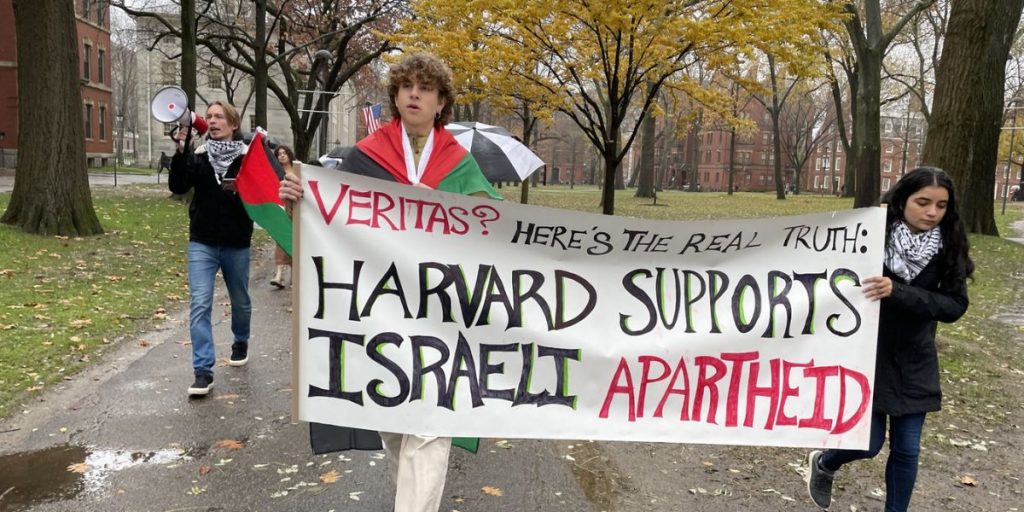The University barred entry to Harvard Yard until Friday afternoon, seemingly in preparation for student protests, which came amid a wave of high-profile pro-Palestine demonstrations at institutions throughout the country, including Columbia and Yale.
The closures indicate that Harvard’s leadership is seeking to avoid a repeat of the situation at Columbia, where more than 100 students were arrested Thursday by the New York City Police Department for their involvement in a continuing pro-Palestine encampment on the school’s main quad.

A notification announcing the closure was posted on the Yard entrance gates, warning of disciplinary action against Harvard students and affiliates who brought in unlawful structures such as tents or tables or blocked access to building entrances.
According to an email addressed to students and staff working in the Yard, the closures are being implemented “out of an abundance of caution and with the safety of our community as a priority.”
The arrests at Columbia inspired a wave of solidarity rallies at campuses around the country, including Harvard, where over 200 Harvard affiliates demonstrated in Harvard Yard on Friday, asking that the university “disclose and divest” from Israeli enterprises and investments in the West Bank.
A consortium of recognized and unrecognized pro-Palestine groups coordinated the Harvard event. Unrecognized activist organizations, such as the African and African American Resistance Organization and Jews for Palestine, which occupied University Hall in November, have increasingly taken the lead in pro-Palestine college activism.
The University “shifted to HUID access only to stay ahead of potential issues with non-Harvard recognized groups,” College spokesperson Jonathan Palumbo told The Crimson on Sunday.
Though the spring semester has been relatively calmer than the fall, when frequent student protests widened campus divisions and contributed to former President Claudine Gay’s fall from grace, the growing backlash against the arrests at Columbia coincides with a resurgence of pro-Palestine activism at Harvard.

In recent weeks, three Harvard student governments — Divinity School, Law School, and Graduate School of Design — passed resolutions urging the university to divest from Israeli occupations in the West Bank and the Gaza conflict.
Undergraduate organizers successfully petitioned the Harvard Undergraduate Association for a college-wide divestment referendum, but the vote was postponed indefinitely due to a procedural issue.
While Harvard’s leadership has consistently opposed boycotts of Israel, a student occupation at the University would still pose challenges for interim Harvard President Alan M. Garber ’76, who has attempted in his first few months to defuse campus tensions and persuade outside observers, including members of Congress, that Harvard is prepared to combat antisemitism on its grounds.
On Friday, the National Chapter of Students for Justice in Palestine issued a “call to action” via Instagram.
In a follow-up post-Sunday, the group mentioned encampments at Columbia, Yale, Rutgers University, and The New School, promising more to come.
“The encampments transform mass mobilization into long-term sustained occupation, leveraging our tangible power as students to give our institutions no other option but to divest,” the group said in a statement.